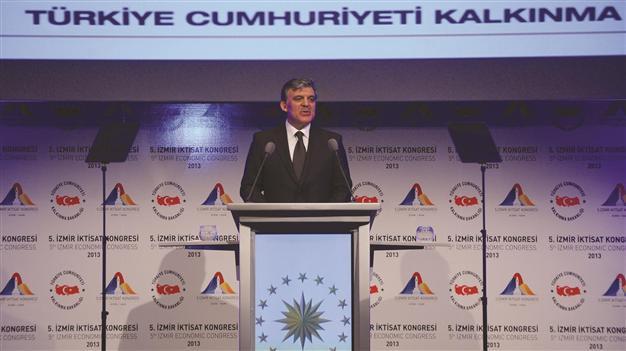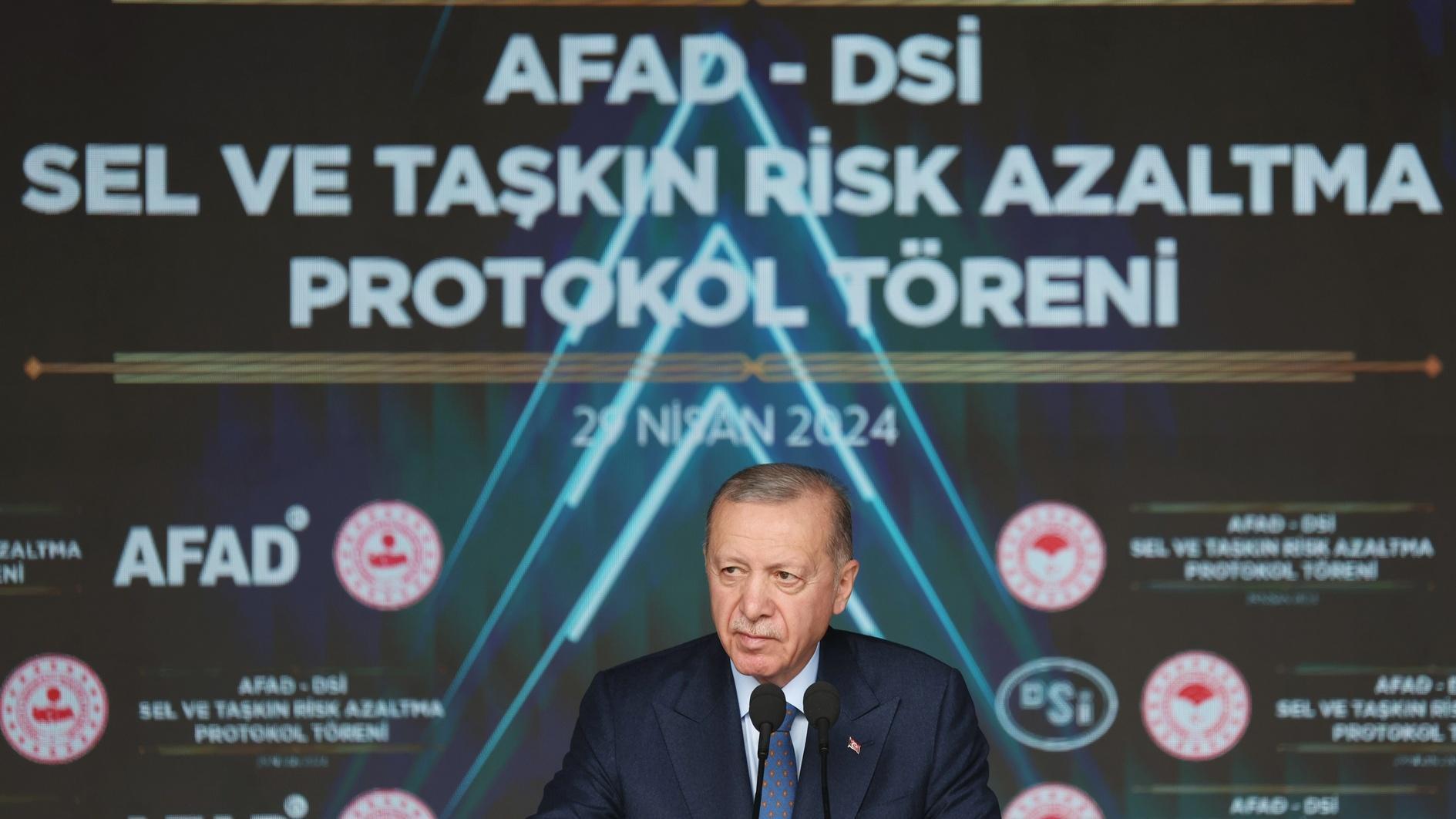Turkey needs second generation of reforms: President Gül
İZMİR - Anadolu Agency

President Abdullah Gül delivers a speech during the opening ceremony of the 5th İzmir Economic Congress, attended by a number of high-level officials. AA Photo
Structural transformations in Turkey have yet to be completed and the country needs a “second generation” of structural reforms that privilege raising the quality of education, President Abdullah Gül said during the opening ceremony of the 5th İzmir Economic Congress on Oct 30.Gül stated that amid the global financial crisis environment, balances had been reshaped in many countries and states, adding that the international and regional conjuncture offered a golden opportunity for Turkey to close the human and welfare gap with developed countries.
In order to use this opportunity, the country needs to benefit from the dynamics that will boost political and economic stability, strengthen diplomatic gains and assure fast sustainable growth, he said, noting that this would be possible based on demographic, democratic, peace and information developments.
“I believe that when we benefit from these four factors in the best way, we will reach our 2023 targets very fast and securely. Firstly, it is indispensable that we should benefit from demographic premium provided by our young and dynamic population of over 75 million people. We can realize this only with a good educational system and qualified human capital,” he said.
Gül stated that Turkey had realized a structural transformation with the “first generation reforms” by policies over the last 10 years that had established political stability, improved macroeconomic balances, and strengthened the growth potential. He said they had achieved successful results from the first generation reforms but the process had still not yet to be completed.
“I think we need second generation reforms that will carry Turkey to the highest places in the global rankings. Turkey’s first privilege should be raising the quality of the existing education system. A big population that has become qualified with education and science represents a serious power,” Gül said.
Secondly, Turkey needs democracy in the development race, the president added. “The democratization and the rule of law are the natural extensions of the economic reforms in Turkey. The main aim of economic power and welfare is human happiness. Raising democratic standards in our country is one of the privileges for both political and economic development,” he said.
Gül stated that the production model based on low-cost labor wasn’t capable of competing and should be left behind, adding that Turkey had to work more to become a country that could produce added-value and underlining the importance of an economy based on information. He said that while countries that have fallen into the “medium-income trap” tried to produce in a low-cost way, developed economies benefited from information-intensive technologies and focused on innovation in production development, planning and distribution.
Touching on the current peace process in Turkey, Gül said that if Turkey became successful at resolving its deep-rooted problems and establishing a sustainable civil peace, the region would enter the “fast development” phase.
Also, the president argued that the developed market economies would eventually leave their ongoing monetary expansion policies and that Turkey needed to manage this process to minimize the negative effects.
“We shouldn’t forget the effects of the U.S. Federal Reserve president’s statement and not act on capital raising, foreign exchange and interest rates,” Gül said.
He added that the government should focus on resolving Turkey’s low savings rate and issues around the high current account deficit, saying that the measures in the 10th five-year development plan should be applied and the annual saving rate should rise to 18 percent.
















